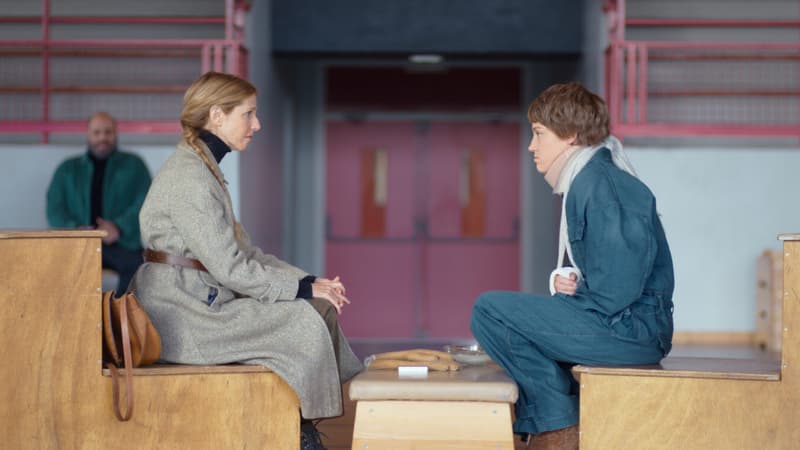Still at the top of the bill despite the polar cold between Moscow and Paris due to the conflict in Ukraine, French cinema remains one of the rare windows to the West for Russia, despite being boycotted by Hollywood. On the contrary, Russia is fundamental in the export market for French cinema, says Unifrance, the organization in charge of promoting French cinema in the world.
Since 2020, Russia has held the first places in the number of spectators abroad for French cinema: first in 2020, second in 2021, third in 2022, first again in 2023 and second last year. In 2024, 73 French films will be released in this country.
As proof: among new products such as Dracula by Luc Besson, The piano accident by Quentin Dupieux or even the cult full sun by René Clément with Alain Delon, Moscow film buffs have plenty to choose from.
“A bubble of colors in which I want to stay”
Alexandra braved the rain to go see The arrival of the future by Cédric Klapisch. “French cinema creates a colorful bubble in which I want to stay,” he told AFP. He hopes to immerse himself in another world to “stop his thoughts about the political context.”
The big Hollywood studios are officially boycotting Russia from 2022, but some American blockbusters are still visible from Moscow to Vladivostok, through piracy.
However, Alexandra believes that her compatriots appreciate “good and thoughtful” French cinema more. “Linked for centuries, our two cultures continue their dialogue” suspended by the leaders, he said, wishing that his last name would not be revealed.
“Healthy” cinema
However, France and its European allies have adopted numerous sanctions against Russia due to its large-scale offensive in its Ukrainian neighbor. Several dozen French companies have also left the Russian market since 2022. But French films continue to be imported.
the animated movie Miraculous by Jérémy Zag has even become the biggest success of a French film in post-Soviet Russia with more than three million viewers in 2023. Last year, The Count of Monte Cristo attracted more than a million Russians, as did Dracula This year.
For Marina, a 33-year-old lawyer, French cinema is “indispensable, even beneficial” right now. Asian and Latin American productions, which Russian distributors aim to offset with Hollywood ones, “have a different energy,” he says. And he adds: “French or European cinema is closer to me because of its atmosphere and elegance.”
For centuries, Russians have cultivated elective affinities that bring them closer to the French, to French literature, read in its original version by the Russian elite “in the 19th century, to the cinema that took over,” Joël Chapron, Russian correspondent for the Cannes Festival, explains to AFP, which evokes “a kind of cultural diplomacy.” French films are for Russians “an opening to the civilization they have always loved (…) and an alternative to propaganda,” he summarizes.
Television is not left out, since the first state channel continues to program French productions. As its boss, Constantin Ernst, explains to AFP: “The subtlety, depth and aesthetics of French cinema are deeply rooted in the Russian soul.”
“Give an opening to others”
Already in the time of the USSR, French films were already popular. In 1952, They fan the tulip with Gérard Philippe he had thus attracted 30 million people to Soviet cinemas. And Jean-Paul Belmondo, Alain Delon, Catherine Deneuve and Pierre Richard remain icons.
Fallen star in France, Gérard Depardieu even received a Russian passport from Vladimir Putin in 2013, before criticizing the Russian offensive in Ukraine a few years later.
With the departure of Hollywood, French cinema has not retreated to “give an opening to others (…) and a different way of life,” a Unifrance spokesperson told AFP, requesting anonymity. He says: “Banning cultural property would mean isolating oneself from the Russian population.”
Unlike American cinema, where “political correctness” plays an important role, French cinema is more assimilable for Russians, estimates Nadejda Motina, president of the Arna Media company, which distributes a dozen French films a year in Russia. And he insisted: “A closed door never helps. We must show the Russians another world with their values and put a little sun in the cold water.”
Source: BFM TV


